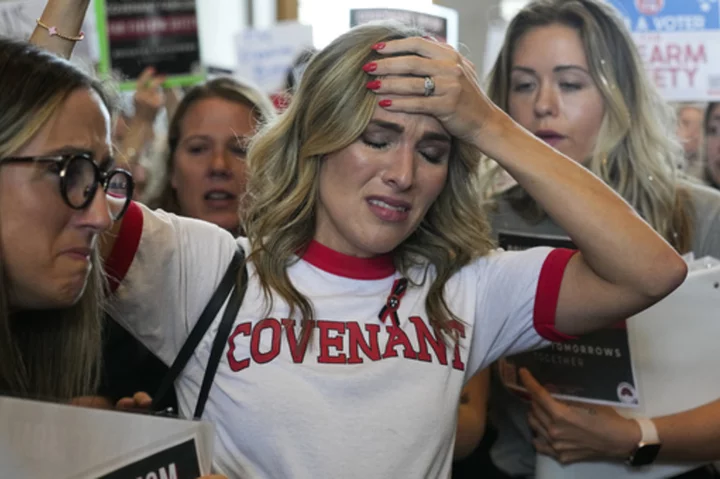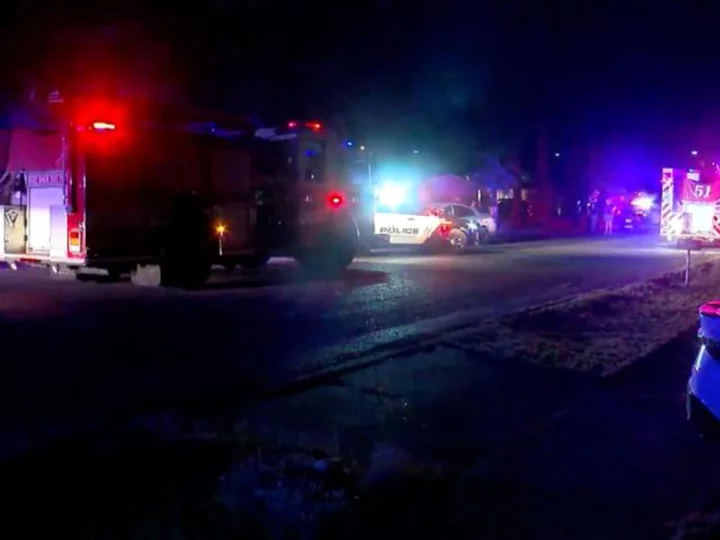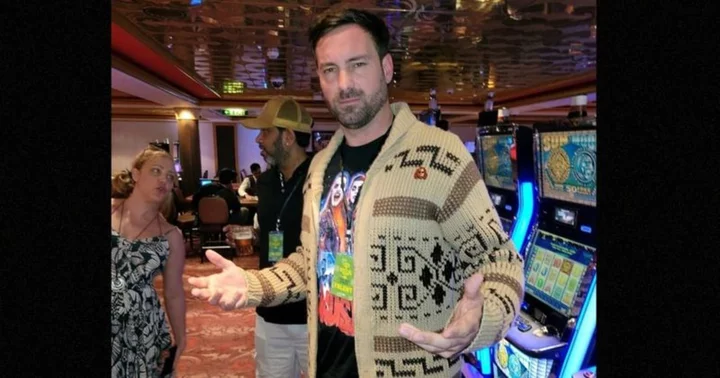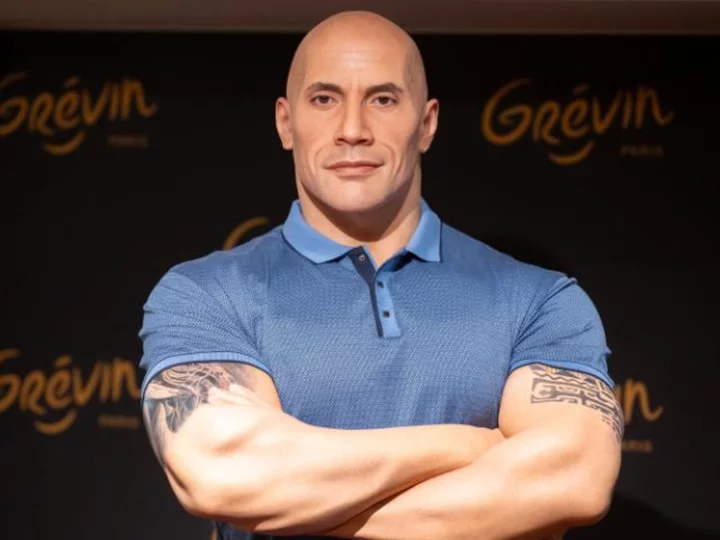NASHVILLE, Tenn. (AP) — For nearly a week, families whose lives were upended by a Nashville elementary school shooting took turns sharing dark details to Tennessee lawmakers.
Their children thought they were going to die. A teacher told students to race each other, knowing they needed to get some place safe quickly to avoid the spray of bullets. Children died after fire alarm evacuation protocols led one class to collide with the shooter in a hallway.
The parents who testified spilled their own stories, but also carried the weight of representing and speaking for the six people — including three children — who were killed by a shooter on March 27 inside The Covenant School. They hoped that doing so during a brief special session in August would compel lawmakers to pass meaningful legislation.
“To me, that was the most nerve-wracking piece,” said Melissa Alexander, whose child attends Covenant. “Trying to tell someone else's story in the most perfect way, it's not easy."
But inside the Republican-led General Assembly, many lawmakers had already dismissed the gun control change as an option and resisted passing any significant changes this year, punting the issue to the next regular session starting in January. They argued that their constituents are protective of the Second Amendment and that taking away guns even temporarily is likely to infringe on people's rights.
It's an all-too-common scene across the United States. Throughout the corridors of many state Capitols, families are sharing emotionally gutting stories of tragedy caused by mass school shootings with the hope that revealing their trauma will convince lawmakers from either party to reconsider firearm policies.
States have differed widely for years in their responses to the spate of mass shootings that plague the country. Democratic-led states have largely tightened firearm restrictions, while Republican-led ones have loosened them. Meanwhile, families have waded into the legislative process, uncovering and reliving personally painful details before lawmakers — privately, publicly or both — with mixed results.
“Families will do whatever it takes to restore that sense of protection that wasn’t there that day, even if that means having to talk with, raise their voices and share what they experienced as a family, and what their kids experienced, with people that they know may not even give them the respect of listening," said Melissa Brymer, director of the Terrorism & Disaster Program at the UCLA/Duke University National Center for Child Traumatic Stress.
The inaction this year in Tennessee was markedly different than how Florida reacted five years ago to a massive school shooting.
Lawmakers in Florida's Republican-controlled Legislature passed a series of gun control laws just three weeks after authorities say a mentally disturbed man killed 17 people in a shooting at Marjory Stoneman Douglas High School in Parkland. The legislation raised the gun-buying age to 21, imposed a three-day waiting period for purchases and let police seek court orders seizing guns from individuals considered a danger to themselves or others — a stronger “red flag” change than a Tennessee proposal that couldn’t even get a hearing.
These changes came after Parkland families gave impassioned pleas seeking school-safety measures.
“I’ve never been an outspoken person. I never wanted to be in this situation. But I’m pleading with you to put your differences aside, “ said Max Schachter, whose 14-year-old son Alex was among 17 people killed at the Parkland shooting, during an emotional 2018 committee hearing. "It’s time to learn to compromise and help make our schools safe again... I’m willing to compromise, are you?”
Instead, the outcome in Tennessee bore more resemblance to the response from Texas lawmakers after 19 children and two teachers were killed at the Robb Elementary School shooting in Uvalde last May.
In April, Kimberly Mata-Rubio waited for more than 12 hours at the Texas Capitol to testify that lawmakers should raise the purchase age for semiautomatic rifles like the one an 18-year-old gunman used to kill her daughter Lexi. The hearing adjourned after 3 a.m. without a vote.
“Did you look at images of children running for their lives, and think, ‘What if we had enacted stricter gun laws?’’” Mata-Rubio asked a Texas House committee, wiping away tears.
Parents offered similar pleas in Tennessee last month during a brief special legislative session called by Republican Gov. Bill Lee. But resistant Republican lawmakers largely dismissed Lee's push for legislation to keep guns away from people who are judged to pose a threat from themselves or others.
Rather than open a debate about the state's lax firearm regulations, the session was overshadowed by debates over new rules temporarily limiting public access around the Capitol and banning people from holding signs at hearings.
Republican legislative leaders argued their constituents didn’t want changes to Tennessee’s gun laws. For years the state's elections have increasingly favored conservatives, so the vast majority of legislative districts are usually decided during GOP primary elections, often rendering general elections a foregone conclusion.
“There’s a huge amount of our caucus, their people who sent them asked us not to do anything,” said House Republican Caucus Chairman Jeremy Faison.
Meanwhile, one lawmaker booted everyone in the audience — grieving parents and all — from one hearing because some in the audience held signs and clapped.
“I don’t think people understand what it means to be up here,” said Sarah Shoop Neumann, a parent where her children attends Covenant, told reporters through tears. “It’s raw.”
During one committee hearing, parents closely connected to the Covenant shooting audibly gasped, and some fled the room in tears, when Republican Rep. Chris Todd suggested that the shooter “probably would have driven over those kids” if they didn’t have a gun, as a way to dismiss that fewer firearms — rather than more — would have prevented the tragedy. He was proposing a wide expansion of who could bring guns into schools.
Todd's comments came after a parent of two Covenant students, Becky Hansen, sobbed while telling lawmakers for the first time publicly that her son's teacher convinced students it was a race so they would move quickly and without panic from outside the school to a safe place.
Abby McLean, a mother of three Covenant students, described how her daughter’s third-grade classroom was fired at through the door window. She held up a photo of her children on her phone as she addressed lawmakers.
“How can we look them in the eye and say, ‘Our solution is going to be by bringing more guns, that you are afraid of, into the building’?” McLean said.
House Republicans wanted a wide range of bills to pass, the Senate pursued only a few, but neither were open to gun restrictions. Four bills with minimal changes ultimately passed.
For many parents, it signaled they would likely retell and relive these dark moments for many more months, as they pledged to seek change next legislative session and in the 2024 statehouse elections.
“I really think the stories we shared are going to live on,” Alexander said. “I think they’re going to play an important role in changing our country and making a difference. That's why we shared them."
___
Associated Press writer Paul Weber contributed to this report from Austin, Texas.









